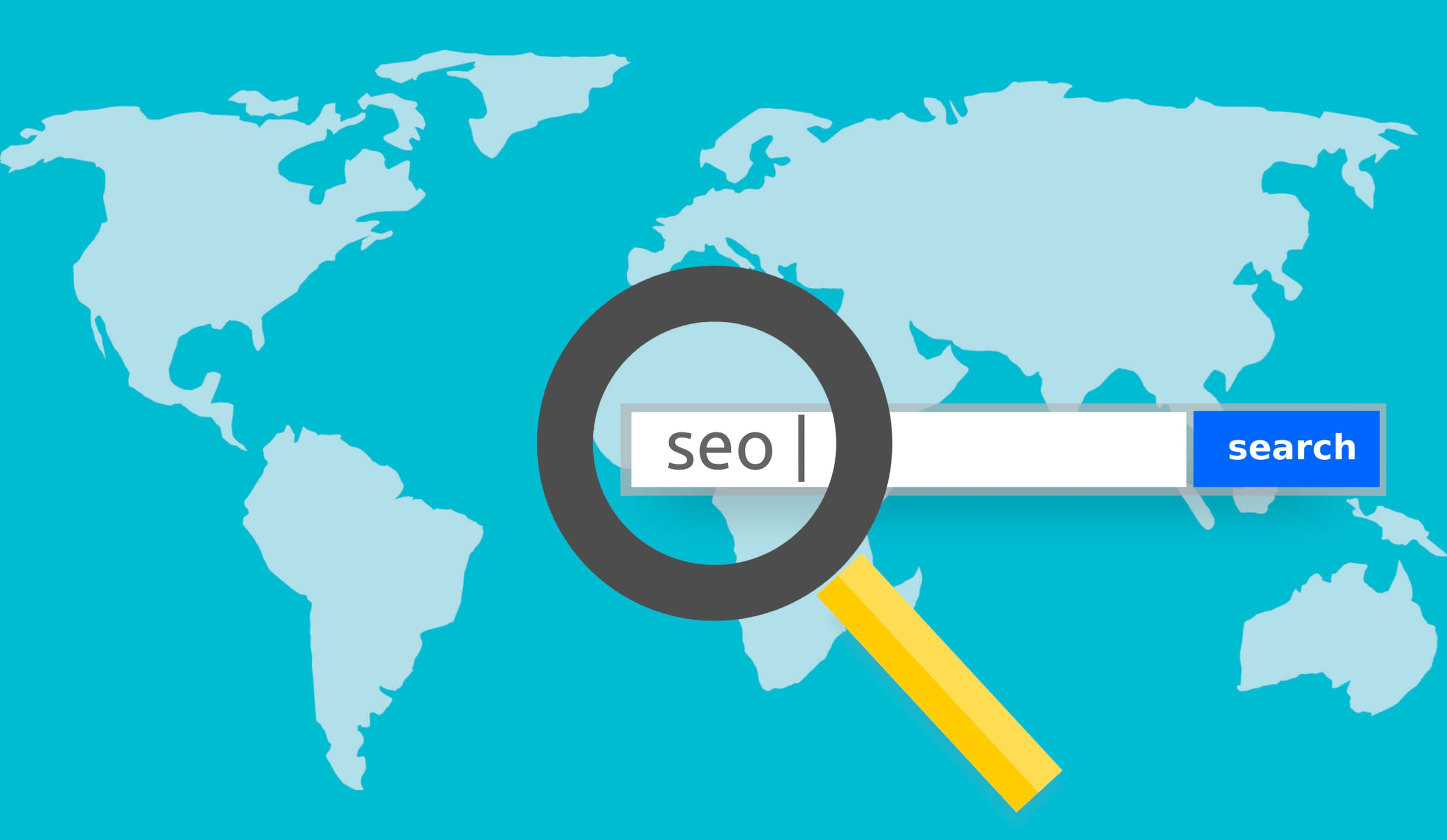Semalt Shares Secrets About Foreign Search Engine Optimization

You manage a company in your country, but you want to increase profits and promote the offer or content on your website in other regions of Europe and even the world. For this purpose, you can use foreign positioning. Read our article and find out how to successfully promote your site with SEO in other countries.
Before I start showing you what you need to know about foreign positioning, I invite you to do two important analyses:
- Industry - About the market and user preferences.
- Technical - About your website, as well as websites of companies with which you will compete.
This will help you answer the question of whether you are able to successfully fight to use the potential of foreign markets.
You can try to do the first analysis yourself, while an SEO audit should be commissioned to a specialist who will pay attention to the technical aspects of positioning and the results of the Google search engine in a given language for websites in your industry.
Now let's move on to the important elements to take into account for foreign search engine optimization!
Market analysis and user preferences
Before entering foreign markets, it is worth checking how foreign websites are built and what content is on them, as well as in what language they are written. When planning website positioning, for example in Barcelona and Catalonia, it is worth checking whether the popular pages there have their text in Spanish or in Catalan. It's important to know as many nuances as possible before jumping into deep foreign water.
Therefore, before starting positioning of a website abroad, verify at least such issues as:
- language and dialects spoken in the related country;
- trust in foreign companies or websites that have a domain extension pointing to another country;
- market share of various search engines (e.g. Google, Yahoo, Bing, Yandex etc.) in a given country, devices used;
- potential traffic from organic results for a similar page, preferably your direct competition;
- restrictions on the purchase of a domestic domain;
- competition;
- legal and accounting issues related to running a business;
- habits of consumers to forms of payment and transport, returns, guarantees, etc.
If you get as much information as possible, it will be easier for you to decide whether it makes business sense to enter foreign markets. If so, you will already have the basis for further SEO activities.
SEO audit of your website and the competition

Now you are ready for possible website and business changes and, more importantly, you see opportunities for business development. So, the next step will be an SEO audit of your website and determining the potential competition in a given market.
This action is worth outsourcing to an SEO agency or specialist who will verify the target country in terms of the required positioning activities. This is one of the most important steps as it will serve as a starting point for your future SEO strategy.
The following issues should be addressed in the audit:
- verification of a possible "entry barrier" (average time to achieve the first search engine transitions);
- identification of pages that compete with your website in a given country;
- verification of technical SEO issues, including domain extension in search engine results, architecture and content volume;
- verification of traffic sources and their estimation from the results of free search engines;
- estimation of positioning costs based on competitors' websites;
- plotting the potential time to achieve effects based on historical increases in competition.
After the SEO audit is completed, you can move on to further activities related to positioning.
First of all, you should start with adjusting the website to conduct search engine promotion on a given foreign market. Here usually questions arise regarding:
- a new domain or subdomains that will be used in SEO activities;
- changes in the website structure in terms of language versions, translation management, etc.;
- Technical optimization, including Hreflang and lang tags, linking between different language versions.
Why is it so important? For example, users in Germany are more likely to choose pages that have a national extension, i.e. .de. The same is true in England, where .co.uk or .uk domains can enjoy more trust. Thus, by promoting the website in the .pl domain, you can get less traffic from organic search engine results, even despite good positions.
Further work related to positioning
The next steps related to SEO are the same positioning all over the world. According to the audit, major and minor modifications are made in terms of website optimization.
In addition, a keyword research is done to prepare later new content or to extend the existing content, unless it is not an element of the audit. These keywords must be chosen by a keyword generator tool qualified for this task such as the Dedicated SEO Dashboard. We'll go into more detail in the rest of this article.
Of course, apart from works in the area of the website (on-page), off-page activities are performed, which consist in gaining authority by the domain and website, as well as acquiring external links. Examples of link sources can also be indicated in the SEO analysis.
How to prepare a website for positioning for foreign markets?
Before starting SEO activities, it is worthwhile to analyze the search results. Also, check the competition operating in the location where you want to promote your website. We talked about this step in the SEO audit, which is worth doing before making any changes. In this topic, we will talk a little more about the appropriate tool you can use to effectively achieve this.
Dedicated SEO Dashboard: the favourite tool of webmasters for foreign SEO

As I was saying, to position yourself better in the foreign market, one of the important steps is to analyze the competition of the market you want to position yourself in. To do this, you need an effective tool, so that you can move forward with confidence and be sure to find a good position in the market.
The only SEO tool of the last generation that is equipped with various features to accomplish this easily and cheaply is the Dedicated SEO Dashboard.
So, let's see how this tool can help you position yourself better in the local and international markets.
First, we have the competitive analysis
The Dedicated SEO Dashboard has a feature called Google SERP Analysis. which allows you to know who your potential direct or indirect competitors are in each niche. In addition, it reveals each of their organic or paid promotion strategies by providing you with their traffic-generating keywords. This way, you won't have to worry about how to position yourself since this tool already shows you the way. All you have to do is to act in order to make the most of the market and get ahead on the design.
Secondly, we have the SEO audit
After doing the competitive analysis, we need to think about the user-friendliness and technical aspect of the competitors' sites in order to compare them to our site. To do this, a thorough SEO audit is important.
This is one of the competitive benefits of the Dedicated SEO Dashboard. With this feature, you can perform a complete analysis of any website. Everything from technical auditing to site load speed testing and plagiarism checking.
The SEO Dashboard has many other easy to use features to track the progress of your SEO strategy. It informs you every time of what to improve, change or remove, to get more traffic. In other words, it is the gatekeeper of your SEO strategy.
So, if you want to go much faster in your project, I let you discover each of these included features. You will have a 14 days free trial period to approve the performance of this tool before committing financially.
Here are the solid basics to keep in mind when preparing your website abroad
In the case of foreign positioning, you need to take care of a solid foundation, that includes:
- technical optimization;
- an appropriate website structure;
- very often new content in the target language or their expansion;
- support for indexing robots in terms of multilingualism;
- and optimization for mobile users.
Google and other search engines place great emphasis on the high quality of websites. In organic results, they promote those that meet the expectations of the user and are the most friendly to him. Despite the differences between the markets, this rule does not change.
Among others, Google and Bing enable website owners and administrators to improve their quality by accessing free webmaster tools. For example, for Google these are, among others:
- Google Search Console
- PageSpeed Insight
- Structured Data Testing Tool
On the other hand, you also have the Dedicated SEO Dashboard which takes care of the quality of the sites much better than any of these free tools.
Because it allows:
- website monitoring for errors and recommendations regarding quality and usability, as well as verification of the current effectiveness in search engine results;
- the ability to test website speed and Core Web Vitals elements;
- the verification of the correctness of embedding structured data.
Do I have to buy a domain in the target country?
An important issue in the positioning process is the domain. The address of a foreign website affects both its positioning and its reception in the eyes of potential customers.
Usually, the preferred solution is to use a domain ending in a given region or country, e.g.:
- .de for Germany
- .co.uk for Great Britain
- .fr for France
In positioning for foreign markets, domain addresses ending with .com are also used, but such a variant is not always recommended. It is worth verifying it in advance in terms of a given market and the possibility of achieving the intended effects.
However, if you want to position different language versions using one domain address and thus one website, the .com extension is potentially the best solution. The .com domain, i.e. the top-level domain, has certain privileges due to its general nature - it can in theory be used in any country.
Should you buy hosting for a foreign site?
Taking into account the effects of positioning, the purchase of a new server or hosting is not necessary but definitely recommended.
Hosting at the user's location or the use of a network of proxy servers will reduce the loading time of resources and - therefore - the website's. This will be a noticeable benefit for users who receive the website faster.
The hosting or server IP address is not a ranking factor in itself. By verifying your competitors' websites that are at the top, you can draw similar conclusions yourself. It may turn out that the IP addresses of competing websites will not coincide with the country where they are visible and perform SEO activities.
Such observation will allow you to make sure that the server location issue will not affect the positioning effects and its purchase will not translate into SEO effects.
An alternative to hosting overseas is to use a service like Cloudflare, which can reduce your website load times even around the world. Importantly - without the need to purchase hosting in different locations.
Is the physical address necessary to position the website in a foreign location?
When implementing SEO activities for a given website, one of the elements is building authority in the search engine and among users.
NAP (Name, Address, Phone Number) business cards are helpful, i.e. those containing contact details, as well as industry directories with basic data, in which it is often impossible to add data other than from a given location / country.
In addition, address data are used to verify Google My Business cards, which additionally increase the chance of acquiring customers locally and from Google Maps.
It is also advisable to include basic contact information on the website and mark it with structured data. These will increase visitor confidence in the website and can break fears of unknown brands and sites.
If you do not want to incur the costs of maintaining a branch office, you can use a cheaper alternative - purchasing a virtual office service in a given country.
Of course, SEO activities can be carried out without a physical branch of the company, but it can to some extent help in acquiring links and planning local positioning strategies.